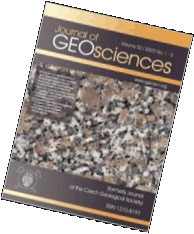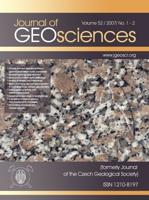Original Paper
Chulitnacula, a new paleobiogeographically distinctive gastropod genus from upper Triassic strata in accreted terranes of southern Alaska
Journal of the Czech Geological Society, volume 46 (2001), issue 3-4, 299 - 306
A new protorculid gastropod genus, Chulitnacula, is based on Protorcula alaskana Smith, 1927, from the Chulitna terrane of south-central Alaska. The type species also occurs in two other accreted terranes of southern Alaska: (1) in the Farewell terrane (Nixon Fork subterrane) of southwestern Alaska; and (2) in the Alexander terrane of southeastern Alaska. This taxon is a common to dominant element in shallow-water, near-shore late Norian age strata of all of these terranes. It appears to be biogeographically significant in that while it so abundant in these southern Alaskan accreted terranes, it is completely unknown elsewhere in Upper Triassic para-autochthonous rocks of western North America (i.e. Nevada, Sonora). The occurrence of Chulitnacula alaskana (Smith, 1927) in the Chulitna, Farewell (Nixon Fork subterrane) and Alexander terranes suggests that they were in close reproductive communication in the Late Triassic. The absence of this taxon in either the Wrangellia terrane of southern Alaska and British Columbia, as well as in the related Wallowa terrane of northeastern Oregon and adjacent western Idaho is worthy of note. This absence plus many other major differences in their respective Late Triassic gastropod faunas indicate that the Chulitna-Farewell-Alexander terrane association was far removed from the Wrangellia-Wallowa terrane couplet. While both faunal associations are characteristically tropical in aspect, their biogeographically differing faunas indicate that they were probably very distantly separated from one another in the Panthalassa Ocean at this time.
Webdesign inspired by aTeo. Hosted at the server of the Institute of Petrology and Structural Geology, Charles University, Prague.
ISSN: 1803-1943 (online), 1802-6222 (print)
email: jgeosci(at)jgeosci.org


IF (WoS, 2024): 1.3
5 YEAR IF (WoS, 2024): 1.4
Policy: Open Access
ISSN: 1802-6222
E-ISSN: 1803-1943
 Export to Mendeley
Export to Mendeley